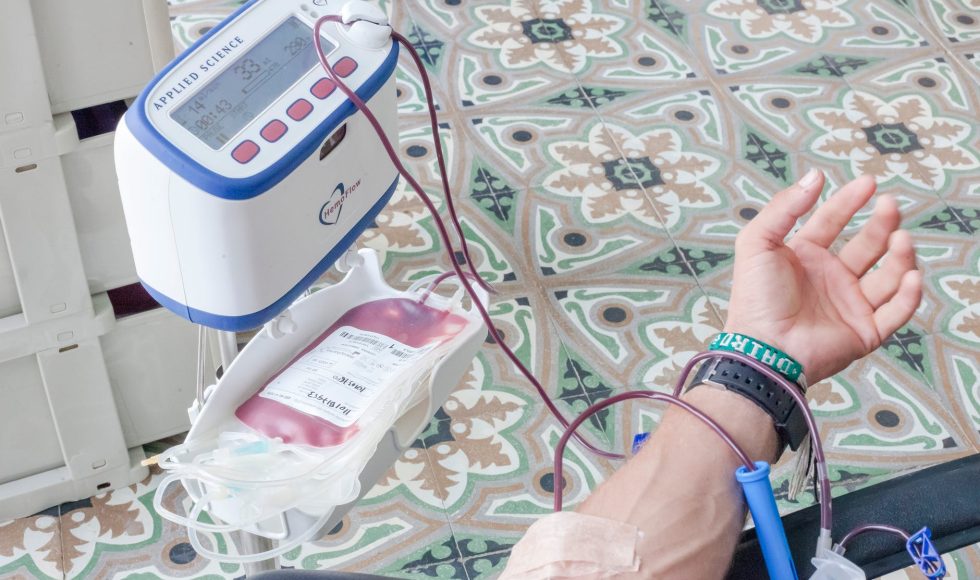“Detection and differentiation of respiratory viral pathogens using near real-time sequencing” is the title of the London Calling 2023 session by Lukasz Rabalski from the University of Gdansk & Military Institute of Hygiene and Epidemiology in Poland. Rabalski is interested in co-infections and their prevalence and clinical impact. Co-infections can increase the severity of diseases […]
Camille Mumm, a graduate student at the University of Michigan, presented at London Calling 2023 a five-minute session entitled “Exploring the impact of mobile elements on Alzheimer’s disease using targeted long-read sequencing. They explained that Alzheimer’s disease (AD) is a devastating neurodegenerative disease with not yet fully characterized genetic mechanisms. Somatic mutations in the brains […]
Tonight I watched a London Calling 2023 Masterclass on “How to extract high-quality DNA and RNA” with Vania Costa, a Field Applications Scientist with Oxford Nanopore Technologies. This is part of a series of Masterclasses. The learning objectives, Costa explained, were how to determine the right extraction method as well as common practices. Costa said […]
Hagar Mor-Shaked from the Hadassah Medical Organization & Faculty of Medicine at the Hebrew University of Jerusalem in Israel presented at London Calling 2023 on “Pathological short tandem repeats analysis by long-read sequencing in affected individuals.” They explained that pathological repeat expansions can be found in coding and non-coding regions, and a few dozen have […]
The London Calling 2023 “Human genomics – from targeted to whole-genome sequencing” showcase recording is fifteen minutes long and highlights applications. Rachel Rubinstein, a technical product manager at Oxford Nanopore Technologies (ONT) shared various applications from targeted and whole genome de novo assembly. They spoke about the PromethION line of sequencing which can produce up […]
Luis Paulin from the Baylor College of Medicine presented at London Calling 2023 a short session entitled “The long and short of structural variants using Oxford Nanopore Sequencing.” Paulin described how genomic variation caused structural variants (SV) and copy number variants (CNV). Using long-read technology allows for access to difficult to sequence genomic regions, thus […]
Miten Jain from Northeastern University presented at London Calling 2023 about “A complete analysis of human genomes and transcriptomes using nanopore sequencing.” They spoke about R10.4.1 ultralong DNA sequencing. Jain’s group has been using this sample prep and flow cells with N50s between 90-110 kb and throughput of >100 Gb per PromethION flow cell. The […]
Tonight I watched a short London Calling 2023 session entitled “The dark side of carrier screening: illuminating hard-to-decipher genes in common genetic disorders with nanopore sequencing.” Bradley Hall from Asuragen in the US was the presenter. Hall is the director of research in Asuragen. They spoke about how carrier screening has evolved and more genes […]
Jaime A. Chaves from San Francisco State University and the Universidad San Francisco de Quito in Ecuador spoke at London Calling 2023 on “Galapagos Genetic Barcode: a model for island economic resilience during the COVID-19 pandemic.” Chaves explained how their interests in science and community merged with this project. Galapagos is a top tourist destination […]
Bernardo Aguzzoli Heberle from the University of Kentucky presented at London Calling 2023 on “Oxford Nanopore long-read RNA sequencing enables precise RNA isoform discovery and quantification in human brains.” They shared an example of how longer reads allow for better RNA isoform quantification and discovery. Aguzzoli Heberle also noted that Nanopore sequencing yields more uniquely […]











